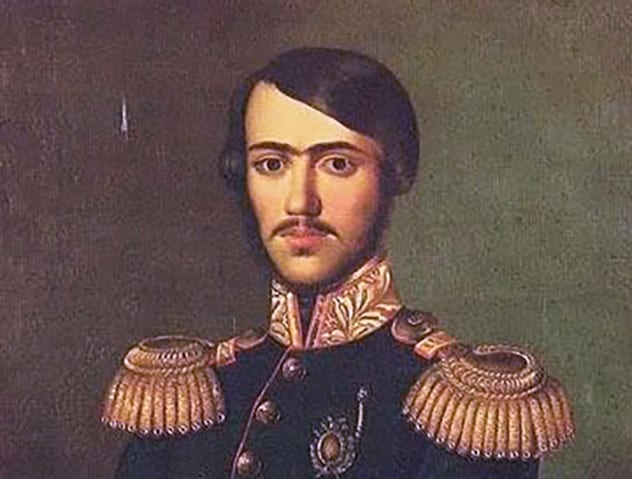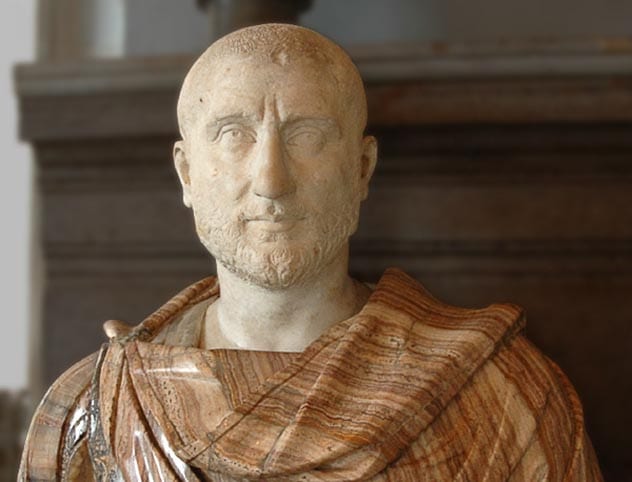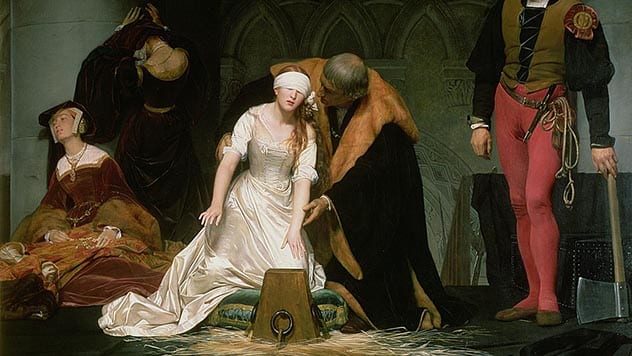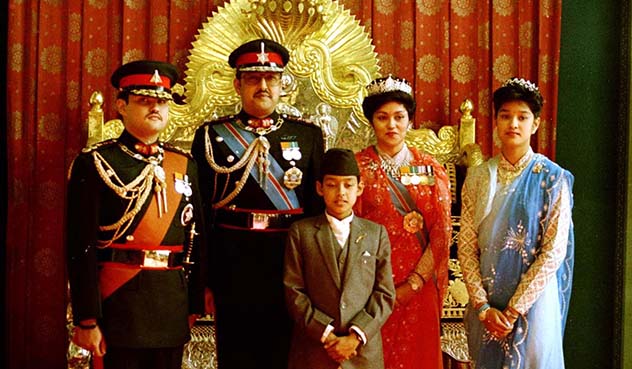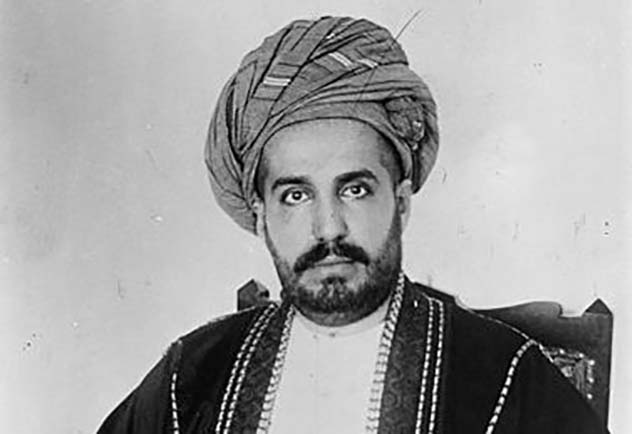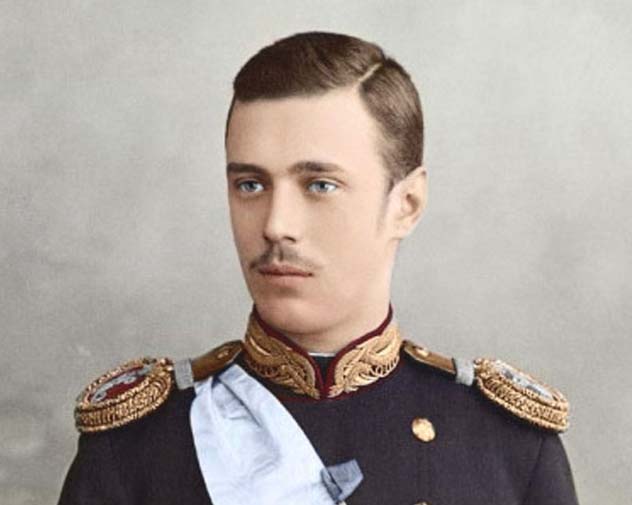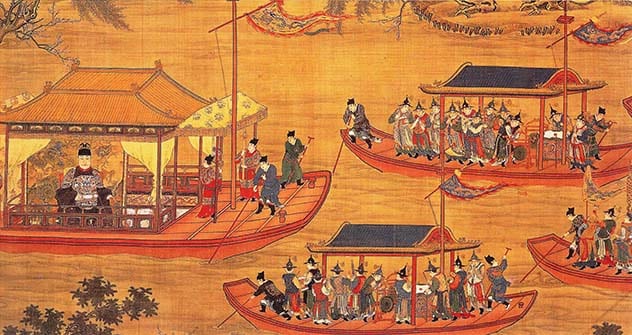See Also: Top 10 Truly Insane Rulers Some survived. Some built empires and dynasties and died old, in their sleep, on silk sheets lined in gold. But others weren’t so lucky. A handful of rulers only ever managed to keep their power for a few days or even hours — and left behind nothing but the incredible tragedy of their brief lives.
10 Prince Milan Obrenovic II: 26 Days
Prince Milan Obrenovic II ruled Serbia for 26 days — and, according to most accounts, he didn’t have any idea he was in power. He was sick his entire life. It seemed to be a family curse — he was his parent’s sixth child, but the first who’d be healthy enough to survive childhood. By the time he turned 20, he was completely bed-ridden — but to two parents who had already lost five children, he was still their miracle boy. Milan’s father, Miloš, abdicated the throne in 1839 and named his sickly son ruler of Serbia — but his son, who was dying of pneumonia, didn’t even understand what was happening. He didn’t sign a single document or give a single rule the entire time. He was too sick to get out of bed, or even grasp the magnanimity (s/b magnitude) of what had happened to him. It’s said that he seemed to think his father was just on a trip and would ask people when he would return. On the 26th day of his reign, Milan succumbed to his illness and died in his bed. He was 20 years old. When he died, he was in his mother’s arms.[1]
9 Gordian I and Gordian II: 21 Days
In the year 238 AD, Rome saw six emperors rise and five of them fall. Every reign that year was brief — but none shorter than the reign of Gordian I and Gordian II, the men who ruled the empire as father and son. Gordian I insisted his son rule with him. The Senate had asked him to rule alone, but the elder Goridan was an old man — already 80 years old — and his son more important to him than anything on earth. He brought his son with him in everything he did. When he became proconsul of Africa, he made his son his right-hand man; and when he was made emperor, he refused to rule without his boy. Gordian’s demand was an act of love from a doting father — but it would end costing his son his life. 21 days after the pair took control of Rome, a rebel army attacked Gordian II in Carthage, where they overran his men and killed him in battle. Gordian I had lost the light of his life. He was an eighty-year-old man who had outlived his son. As soon he heard the news, he retreated to his room, hung a belt around his neck, and ended his own life.[2]
8 Lady Jane Grey: 9 Days
Lady Jane Grey never expected to become queen. She was just a 15-year-old girl; the cousin of the king, but only fourth in the line of succession. And yet, four days after the death of King Edward VI in 1553, she was awoken with the news that she was to rule England. Edward VI was supposed to pass his crown to his sister, Mary — but he was a devout Protestant and wouldn’t stand to see his Catholic sister take power. And so, days before his death, he wrote a will appointing Jane Grey his successor, lighting a spark that would ignite England into chaos. Mary rose an insurrection against her cousin almost immediately. Nine days after her coronation, Lady Jane Grey was thrown in prison for high treason, sentenced to be “burned alive on Tower Hill or beheaded as the Queen pleases.” It took a year for the Queen’s order to come in, but when it did, they took Jane’s husband first. She had to watch as Mary’s men dragged him out of her room, cut off his head, and rolled his corpse out on a cart. When it was her turn, she seemed brave, for a moment. She recited a psalm asking God for mercy and, when the executioner asked her for forgiveness, simply asked him to make her death quick. She didn’t panic until, blindfolded, she was ordered to put her head on the block — and, in that fit of irrationality that comes with fear, became terrified that she couldn’t find it and cried out: “What shall I do? Where is it?” The Deputy Lieutenant of Tower Hill led her to her place, and the executioner did what she asked him to do.[3]
7 King Thong Lan: 7 Days
Thong Lan was 15-years-old when he was appointed king of Ayutthaya, an ancient kingdom in Thailand. For one brief week, he was the most powerful man in the nation — but he didn’t have time to do anything burn mourn and die. In 1388, Thong Lan’s father, Boromrachathirat I, got sick and died en route to a battle. In a matter of days, Thong Lan was forced to deal with the news that his father would never be coming home, that he would have to rule in his place, and — shortly after — that an army was coming to kill him. A local ruler, Ramesuan, amassed an army the second he heard that young Thong Lan was on the throne, and within days, he was at the door of his palace. Thong Lan had never done anything to Ramesuan. In fact, by all accounts, Ramsuan and his father had been friends. But for reasons historians can only guess at, Ramesan didn’t hesitate for a second before taking his friend’s young son’s life. Ramesuan had Thong Lan dragged out to a Buddhist temple, wrapped in a velvet sack, and beaten to death with a club just seven days after his father’s death.[4]
6 King John I: 5 Days
King John I is the only French king that spent his entire life as the uncontested ruler of France — but he was only king for five days. John I was the only male son of King Louis X, but when Louis died on June 5, 1316, he was still in his mother’s womb. Rather than complicate the line of succession, the French rulers decided to wait until John was born and make him king. And so, from the moment he was born on Nov. 15, he was the sovereign ruler of France. John I, however, lived in a time when child deaths were rampant. As royalty, he had a better chance than most, but it was enough. The baby saw five days of life, then left the world. There were conspiracy theories about his death — that he’d been murdered by his godmother or his uncle, or even that he’d replaced with a commoner’s baby and lived out a full life as an unknown merchant — but there’s no proof that any of them are true. Odds are that the story is a simple as it seems: he was a baby who didn’t make it.[5]
5 Dipendra of Nepal: 3 Days
One of the shortest reigns in history happened just 19 years ago. It was the brief but horrid reign of Dipendra of Nepal: the boy king who massacred his own family. On June 1, 2001, Dipendra arrived at a family party so drunk that he could barely walk and ready to fight. He went straight into arguing with his father, furious that he and his mother were trying to discourage him from marrying the woman he loved. He left in fury, then came back, armed with multiple automatic weapons. And to everyone’s horror, he opened fire on them all, starting with his father. “He went wild and started shooting whoever came in front of him,” a survivor of the massacre, Dr. Shahi, told the New York Times. “How many weapons he used, I’m not sure. I didn’t count. It was too fast.” Dipendra murdered his father, his mother, his brother, his sister, and five other members of the royal family before turning his weapon and shooting himself in the head. Nobody knows for sure why he did it. Some say it was because his parents tried to stop his wedding, while others find it all so unbelievable that they’ve built conspiracy theories saying Dipendra was framed. But Dipendra’s friends say that, in the years before the massacre, his mental health was slipping. Dipendra was on antidepressants, and friends had expressed that he needed help. The bullet he turned on himself killed him slowly. Instead of dying right away, Dipendra slipped into a coma. For three days, before he stopped breathing, the man who’d killed the royal family was king.[6]
4 Sultan Sayyid Khalid bin Barghash: 2 Days
The shortest-lived Sultan of Zanzibar saw his reign met an abrupt end in history’s shortest war. On Aug. 25, 1896, Sayyid Khalid bin Barghash ascended to the throne of Zanzibar — and, almost immediately, was ordered to step down. The British Empire saw Sayyid as a difficult ruler. They wanted someone more willing to bend to their will in charge, and so — calling on a treaty that required Zanzibar to get permission from the British before naming anyone Sultan — they demanded Sayyid give up his place. Soon, the British Navy was outside his palace, ordering him to haul down his flag and leave. They gave him until 9:00 on Aug. 27th to comply or the palace would be destroyed. When Sayyid refused, the British opened fire. For 38 minutes, they shelled his palace, engulfing it into flames and killing 500 people in the process, before the Sultan’s men surrendered. It was the shortest war in history — and with it ended one of the shortest reigns.[7]
3 Minshinzaw: 18 Hours
Minshinzaw spent his life in exile. He was cast out of his home country of Pagan, in modern Myanmar, by his own father in 1152 after he criticized him for marrying a foreign woman. But even though his father had kicked him out, he never stopped working to impress him. In exile, he took control of the land he’d settled in and made it more prosperous than it had ever been. He set up dams and canals that tripled their harvest and developed a focus on education that drew in some of the greatest minds. But when his father died in 1167, Minshinzaw didn’t hesitate to take up his responsibility to the people of Pagan. He left his land behind and return to what had once been his kingdom to take the throne. He returned home, where his younger brother, Narathu, pronounced him king. What Minshinzaw didn’t know, though, was that Narathu was after the throne. He had already smothered their father in his sleep with bedsheets. Minshinzaw didn’t make it through the night. While he slept, his brother poisoned him, wiping out the last person standing in the way of the throne.[8]
2 Tsar Michael II: 16 Hours
Michael II woke up on the morning of March 15, 1917, to learn that his brother had abdicated the throne and named him Tsar. It wasn’t a great gift. In 1917, the Russian Revolution was already in swing, and Michael knew no emperor would last long. And so he did what every other person on this list ought to have done: he gave up the throne. Michael declared that he would only take power if he was elected by universal suffrage and stepped down within 16 hours of being proclaimed Tsar. Then he returned to his villa and hoped for a simple life. It didn’t work out. He was arrested shortly after abdicating the throne and kept on house arrest for a year. Then, on June 12, 1918, a member of the Secret Police named Gavril Myasnikov broke into his house, forced him into a carriage, rode him out into the forest, and shot him. Michael’s secretary and closest friend, Nicholas Johnson, was dragged out and shot with him. Johnson was shot first. When they shot Michael, he was reaching out to his wounded friend, trying to give him comfort as he died.[9]
1 Empress Yuan: Less Than 5 Hours
Nobody knows Empress Yuan’s full name. Nobody ever wrote it down. All that’s recorded is that she was the only child of Emperor Xiaoming, and that, for a few hours in 528 AD, she ruled China. She was never anything more than a puppet in her grandmother’s game. When she was born, her father was already in ill health, and her grandmother, Empress Dowager Hu, was determined to stay in power. And so, to make sure the succession would fall to baby Yuan, she told the world that the baby was a boy. Empress Yuan was only 50 days old when her father died and she was named ruler. And immediately, her grandmother used her power to replace her with another child she could control: a 3-year-old name Yuan Zhao. The plan worked, in a sense — but it infuriated a nation. The people revolted against Empress Dowager Hu almost immediately. The babies she’d manipulated were killed with her. Empress Dowager Hu and 3-year-old Yuan Zhu were dragged out of the castle and drowned in the Yellow River. And everyone connected to her — some 13,000 people in all — were slaughtered in a horrific massacre. Only 83 names of the 13,000 killed were ever recorded. We can’t say for sure what happened to Empress Yuan, but the Emperor’s little girl was never heard from again.[10] Read More: Wordpress
